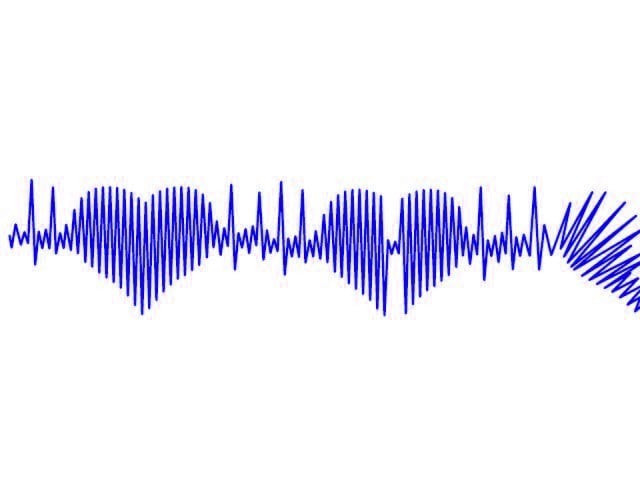More young people are suffering from heart problems, observe experts
‘Pakistan is facing a dearth of paediatric cardiologists, Karachi has only 5’.

Pakistani youth, especially those under 16 years, are becoming increasingly vulnerable to infectious diseases, such as rheumatic fever, which affects the heart valves, said Tabba Heart Institute cardiac anaesthesia department head, Dr Iqil Naqvi.
“About 80 per cent of the patients with heart valve problems suffer rheumatic fever,” Dr Naqvi told The Express Tribune after the annual symposium of cardiac anaesthesiologists on Wednesday. According to Naqvi, more than 50 per cent of rheumatic fever cases in Pakistan are fatal.
Symptoms of rheumatic fever
Sore throats, fever over 99 degrees centigrade, swelling in the joints and irregular heartbeats should be checked by a qualified professional as soon as possible to avoid further complications, Naqvi advised. These symptoms may seem like regular discomfort but people should not take them lightly, he added.
Reasons for prevalence
Besides poverty and lack of awareness, Naqvi said, many children and young adults do not get vaccinated or leave their throat infections untreated. He also pointed out that poor medical facilities are the main reason why people fail to get an early diagnosis and timely treatments of the infection. Another factor that plays a major role is a patient’s denial of the illness, he said.
“The whole system is not geared towards diagnosis of heart diseases since most treatments can be expensive,” he said. There is also an inherent bias in our society for allopathic medication and procedures, he added. The lack of qualified paediatric cardiologists in Pakistan is another disturbing reality. “In fact, there are only five in Karachi,” he said.
Heart problems in young adults
The head of cardiac anaesthesia at the Armed Forces Institute of Cardiology in Rawalpindi, Dr Shahab Naqvi, seconds the alarming rise in the number of young, heart patients. For the past 20 years, a growing number of patients have turned up between the ages of 20 to 35 years and Dr Shahab blames a number of factors.
A sedentary lifestyle, which means lack of exercises and laziness, stress, unhealthy eating habits of food rich in cholesterol and regular consumption of red meat, and smoking are all major causes. Since there is no reliable data, Dr Shahab used his own experience to say that an average of eight patients, between 30 and 35 years old, get heart surgeries per month.
What to do when you get a heart attack?
Before you are seen by a doctor:
Do not deny that you are having a heart attack once you experience chest pain and/or discomfort in the abdomen, neck and shoulders.
Immediately chew 300 milligrams of Disprin, as it is a blood thinner.
Keep an Angised tablet under your tongue. You should feel better within a minute and this will also confirm it was a heart attack. Side effects include headaches.
In the case of a severe chest pain or if you feel that you will collapse, cough vigorously. “As if you are bringing the sputum from the depth of the chest.” This helps increase the time before you lose consciousness.
Once again, do not be in denial. Investigate every possibility. Discomfort in the abdomen is especially concerning.
Source: Dr Shahab Naqvi
Published in The Express Tribune, March 25th, 2011.


















COMMENTS
Comments are moderated and generally will be posted if they are on-topic and not abusive.
For more information, please see our Comments FAQ